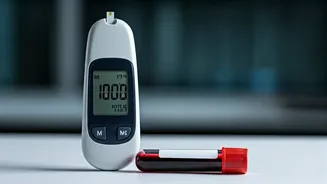Unique Athlete Needs
Teen athletes possess distinct nutritional needs due to their bodies' ongoing development and high energy expenditure. Growing bodies demand adequate calories,
proteins, carbohydrates, and fats to support muscle growth, bone development, and hormonal balance. The intensity and frequency of training also play a role, as athletes require more nutrients than their sedentary peers. Meeting these needs is not just about fueling performance but also about fostering long-term health. A well-balanced diet can minimize the risk of injuries, promote faster recovery, and support mental well-being, which is often overlooked but profoundly impacts performance and overall health. Addressing these special requirements ensures that teen athletes can reach their full potential, both on and off the field, while building a foundation for a healthy lifestyle that lasts well into adulthood. This proactive strategy emphasizes the importance of holistic health, not just physical prowess, in shaping the next generation of athletes.
Fueling Growth & Performance
The right fuel is essential for teen athletes striving to excel. A balanced diet should emphasize nutrient-dense foods that deliver the building blocks for growth and energy. Carbohydrates, the body's primary fuel source, should be abundant in the diet, especially before and after training sessions. Focusing on whole grains, fruits, and vegetables provides sustained energy release and essential micronutrients. Proteins are critical for muscle repair and growth, so include lean meats, poultry, fish, beans, and dairy products in every meal. Healthy fats, found in avocados, nuts, and olive oil, support hormone production and nutrient absorption. Hydration is another important aspect, making water the go-to drink, particularly during workouts and competitions. This comprehensive approach to nutrition optimizes both immediate performance and long-term health, paving the way for sustained athletic success. Prioritizing these foundational elements ensures that young athletes have the energy, recovery capabilities, and overall physical health necessary to reach their potential.
Recovery's Vital Role
Recovery is an often-overlooked yet critical aspect of an athlete's training regimen. Teen athletes, who are pushing their bodies to the limit, require ample time for their muscles to heal and rebuild after intense workouts. Adequate sleep is vital, with most teens requiring between eight to ten hours each night to allow for optimal physical and cognitive restoration. Consuming protein-rich meals and snacks immediately after exercise helps repair muscle tissue and reduce soreness. Hydration is also a key component of recovery, as water helps transport nutrients and remove waste products. Incorporating active recovery strategies like light stretching, yoga, or swimming can aid in reducing muscle stiffness and enhancing blood flow. Ignoring recovery can lead to overtraining, injuries, and a decline in performance. Emphasizing these practices ensures that athletes are well-prepared to consistently train at their best while minimizing the risk of setbacks, highlighting the holistic view of athletic development.
Mental Support Matters
Beyond physical aspects, mental support is important for teen athletes. The pressures of competition, academics, and social life can be overwhelming, potentially leading to stress, anxiety, or burnout. Creating a supportive environment where athletes can openly discuss their feelings is crucial. This support system might involve family, coaches, teammates, and mental health professionals. Encouraging healthy coping mechanisms, such as mindfulness, relaxation techniques, and time management strategies, can assist in managing stress. Establishing realistic goals and celebrating achievements, both big and small, fosters confidence and resilience. Additionally, recognizing the warning signs of mental health issues, such as persistent sadness, changes in appetite or sleep patterns, and withdrawing from activities, is vital. Providing resources and support ensures that teen athletes are well-equipped to manage their mental well-being, which is directly linked to performance, injury prevention, and overall life satisfaction. A well-rounded approach focusing on physical and mental aspects promotes lasting success.
















